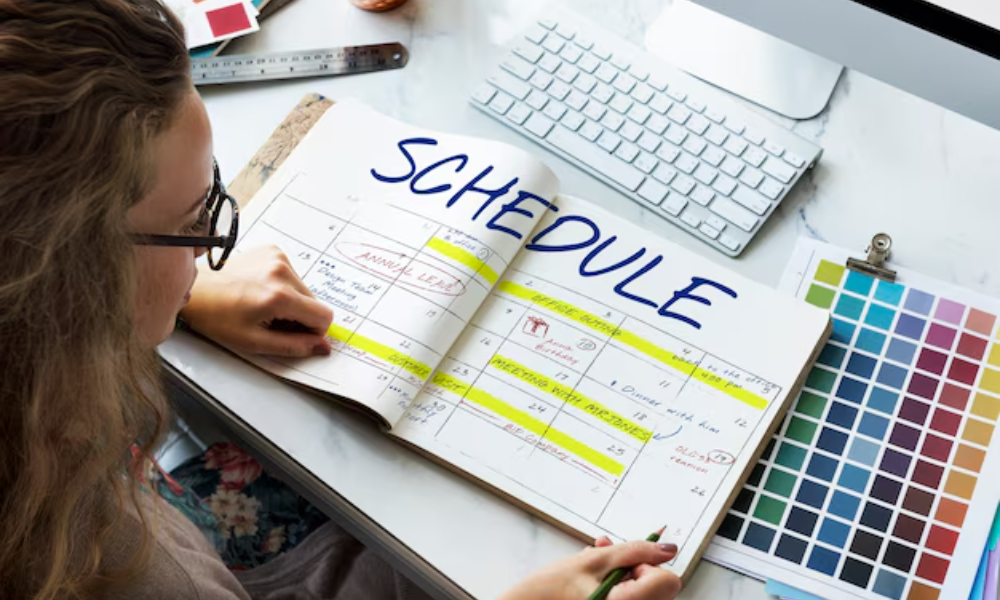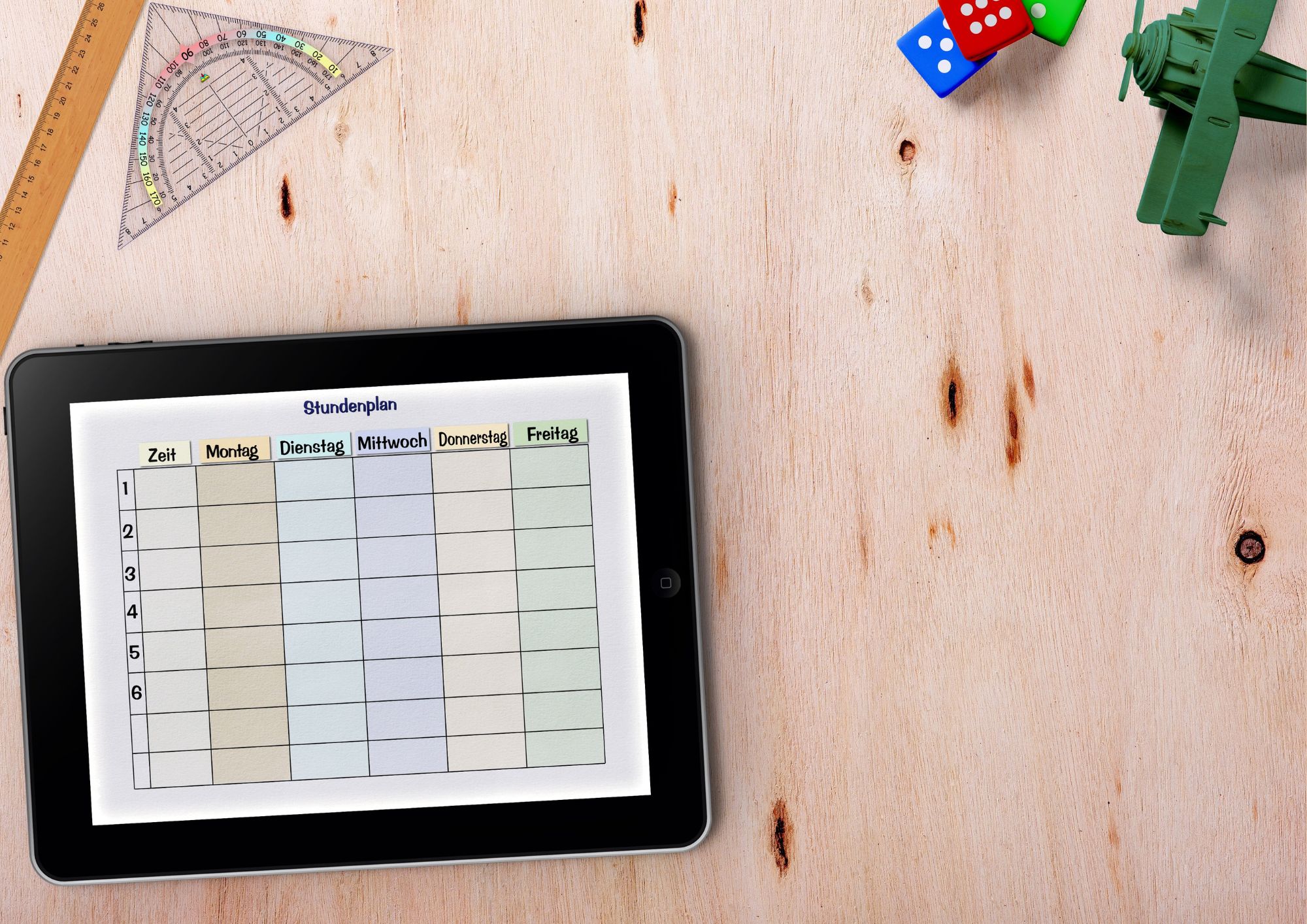Creating an effective study timetable is a crucial strategy for maximizing productivity and achieving academic success. Understanding how to make a study timetable that optimizes your time can transform your approach to learning, making your study sessions more efficient and less stressful.
In this comprehensive guide, boarding schools in himachal pradesh will explore the process of crafting a study timetable that enhances productivity, supported by data, personal experiences, and expert insights.
The Significance of a Well-Structured Study Timetable

A thoughtfully designed study timetable is more than a scheduling tool; it is an essential component for academic success and productivity. Here’s why knowing how to make a study timetable h is so beneficial:
- Enhanced Efficiency: A structured timetable ensures that you make the most of your study time, reducing wasted effort and time.
- Stress Reduction: By clearly outlining your study plan, you can avoid last-minute cramming and minimize anxiety.
- Balanced Routine: Incorporates breaks and personal time, leading to a well-rounded daily schedule that promotes overall well-being.
Benefits of an Effective Study Timetable
Implementing how to make a study timetable that effectively can lead to several advantages:
- Increased Focus: A detailed plan helps maintain concentration by providing a clear study path.
- Better Organization: Assists in managing multiple subjects and deadlines efficiently.
- Improved Time Management: Helps in balancing academic work with other commitments and leisure activities.
Steps how to make a study timetable

Knowing how to make a study timetable involves several critical steps. This section will guide you through each step to help you design a timetable that maximizes your productivity.
Assess Your Current Schedule
Before creating your timetable, evaluate your existing schedule to identify available study times and commitments. Consider the following:
- Existing Obligations: Include classes, extracurricular activities, and personal responsibilities.
- Peak Productivity Times: Determine the times of day when you are most focused and energized.
Set Clear Academic Goals
Define your academic goals to tailor your timetable effectively. Goals might include:
- Subject Mastery: Allocate more time to subjects or topics that need additional focus.
- Exam Preparation: Prioritize revision and practice leading up to exams.
Design a Balanced Timetable
An effective timetable incorporates study sessions, breaks, and personal time. Here’s how to design a balanced schedule:
Allocate Specific Study Blocks
Divide your study time into focused blocks with specific objectives. For example:
- Dedicated Study Sessions: Assign uninterrupted time slots for each subject or topic.
- Regular Breaks: Schedule short breaks between study blocks to rest and refresh.
Incorporate Flexibility
Include flexibility in your timetable to adapt to unexpected changes. This can help:
- Handle Unforeseen Events: Adjust your schedule if additional time is needed for certain tasks.
- Prevent Overload: Avoid overwhelming yourself with a rigid and inflexible schedule.
Integrate Personal Time
Ensure your timetable includes time for relaxation and personal activities to maintain balance. Consider:
- Physical Activity: Incorporate regular exercise to enhance focus and energy.
- Leisure Activities: Allocate time for hobbies and relaxation to reduce stress.
Effective Time Management Strategies

To maximize the effectiveness of your study timetable, implement the following time management strategies:
Prioritize Your Tasks
Identify and prioritize tasks based on their importance and deadlines. Effective methods include:
- Eisenhower Matrix: Categorize tasks into urgent and important, not urgent but important, urgent but not important, and neither urgent nor important.
- ABC Method: Assign priorities to tasks based on their significance and urgency.
Utilize Time Management Tools
Leverage tools and apps to help manage your study timetable effectively. Consider:
- Digital Calendars: Schedule and track study sessions, deadlines, and other commitments.
- Task Management Apps: Organize tasks, set reminders, and monitor progress.
Monitor and Adjust Your Timetable
Regularly review your timetable to assess its effectiveness and make necessary adjustments. Focus on:
- Performance Evaluation: Check how well you are meeting your academic goals and adjust the schedule as needed.
- Feedback: Seek input from teachers, tutors, or peers to refine your study strategies.
Overcoming Common Study Challenges

Studying from home can present unique challenges. Here’s how to address some common issues:
Tackling Procrastination
Procrastination can undermine your productivity. Combat it by:
- Setting Clear Deadlines: Establish deadlines for tasks to stay motivated and on track.
- Breaking Tasks into Smaller Steps: Simplify large tasks into smaller, manageable segments.
Managing Distractions
Minimize distractions during study sessions by:
- Creating a Study Space: Designate a quiet, organized area specifically for studying.
- Using Focus Tools: Employ apps or techniques to block digital distractions and maintain concentration.
Maintaining Consistency
Consistency is key to adhering to your timetable. Maintain it by:
- Establishing a Routine: Follow a regular study schedule to build productive habits.
- Tracking Progress: Monitor your adherence to the timetable and make adjustments as necessary.
Expert Insights on Crafting an Effective Study Timetable

Educational experts emphasize the significance of a well-crafted study timetable for maximizing productivity. Here are some expert insights:
Expert Opinions
Educational psychologists highlight that a structured timetable helps students manage their workload and reduce stress. They recommend:
- Short, Focused Study Sessions: Opt for concentrated study periods rather than extended, unstructured sessions.
- Varied Study Topics: Mix different subjects to keep study sessions engaging and effective.
Academic coaches suggest personalizing your timetable based on your learning style and needs. They advise:
- Tailoring the Schedule: Customize your timetable to fit your individual study preferences and academic requirements.
- Regular Evaluation: Continuously assess and refine your timetable to ensure it meets your productivity goals.
Practical Tips for Implementing Your Timetable

To make the most of your study timetable, consider these practical tips:
Set Achievable Goals
Ensure that your study goals are realistic and achievable within the time frame you have set. This helps in maintaining motivation and progress.
Stay Motivated
Keep yourself motivated by celebrating small successes and progress. Use positive reinforcement and rewards to stay committed to your study schedule.
Maintain a Healthy Lifestyle
Balance your study routine with a healthy lifestyle. Proper nutrition, adequate sleep, and regular exercise contribute to overall well-being and productivity.
Conclusion
Understanding how to make a study timetable that maximizes productivity is essential for achieving academic success and maintaining a balanced lifestyle. By following the strategies and tips outlined in this article, you can create a timetable that not only enhances your study routine but also supports your overall well-being. Embrace the benefits of a well-structured timetable and experience the positive impact on your academic journey.
Comments are closed.